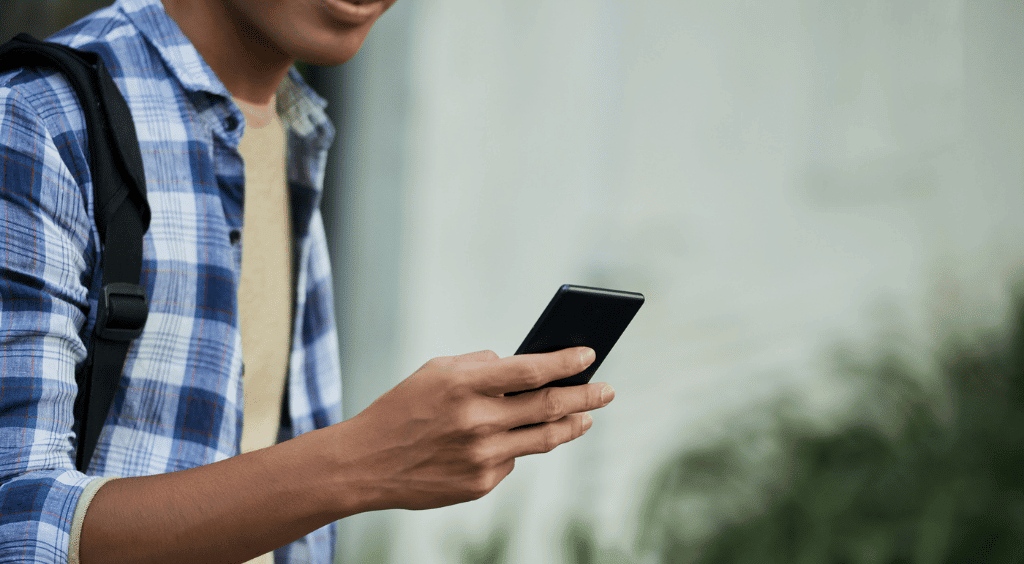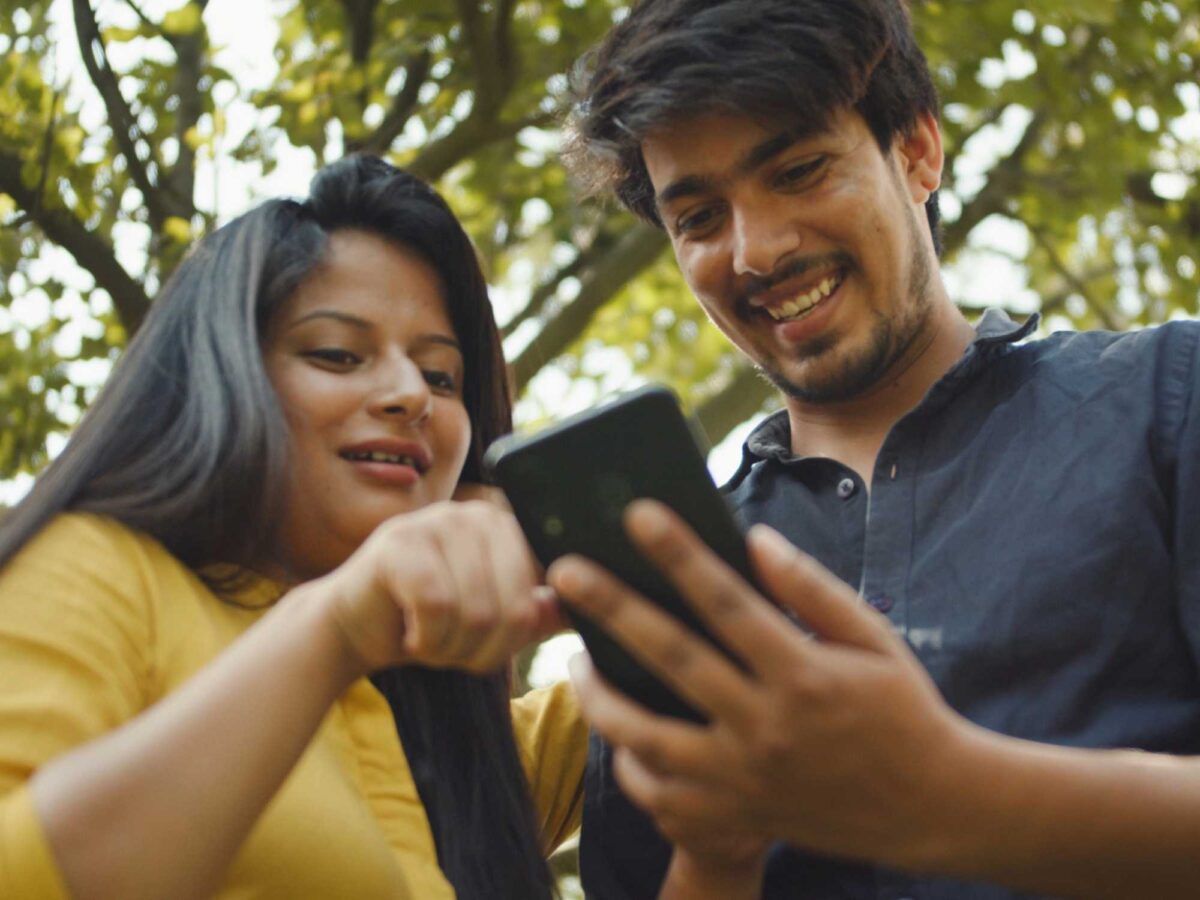
Bii Awọn obi ati Awọn Olutọju Le Ṣe atilẹyin Ilera Ọpọlọ Ọdọmọkunrin
Nigbati ilera opolo ọdọ ba lagbara, wọn le ṣakoso awọn giga ẹdun ati awọn ipalọlọ ti o wa pẹlu iṣawari agbaye wọn.
Iranlọwọ wa fun awọn ifiyesi ilera ọpọlọ. Kọ ẹkọ bi o ṣe le ṣe atilẹyin fun awọn ọdọ ni igbesi aye rẹ.


Wiwa Iranlọwọ Ọpọlọ Ọdọmọkunrin
Atilẹyin ti o tọ ni akoko ti o tọ le ṣe iranlọwọ fun ọdọ lati ṣe rere ati dena awọn iṣoro pẹlu ẹkọ, awọn ibatan, tabi ipalara oludoti.
Iranlọwọ wa ni Maryland nipasẹ:
- awọn 988 gboona (atilẹyin idaamu). Pe tabi ọrọ 988, tabi iwiregbe ni English tabi Sipeeni.
- awọn olupese itọju akọkọ, bii dokita ọmọ tabi dokita ẹbi rẹ
- ile-iwe ìgbimọ
- 211 ọdọmọkunrin nkọ eto ti a npe ni MDYoungMinds
- telehealth support eto
- awọn alamọdaju ilera ọpọlọ, bii awọn oludamoran, awọn oṣiṣẹ awujọ, awọn onimọ-jinlẹ, tabi awọn onimọ-jinlẹ
O tun le wa awọn olupese ilera ọpọlọ ni ibi ipamọ data ilera ihuwasi ti ipinle, eyiti Nẹtiwọọki Alaye ti Maryland fun ni agbara.
Nilo lati Ọrọ?
Pe tabi Ọrọ 988
Ẹnikẹni ti o nilo iranlọwọ pẹlu ilera ọpọlọ tabi awọn iwulo ti o jọmọ lilo nkan le pe 988. Kọ ẹkọ nipa 988 ni Maryland.
Awọn ami ikilọ
Ni ọpọlọpọ awọn ọmọde, awọn ifiyesi ilera opolo ko ṣe akiyesi, tabi wọn ko ri iranlọwọ. Mimọ awọn ami le ṣe iranlọwọ fun ọdọ lati gba iranlọwọ.
Iwadi fihan pe 50% ti awọn iṣoro ilera ọpọlọ farahan nipasẹ ọjọ-ori 14.
Ni ibamu si awọn Opolo Health Association of Maryland, awọn obi ati awọn alabojuto yẹ ki o wa awọn ami wọnyi ti aisan ọpọlọ tabi ipo ilera ọpọlọ:
- Iṣoro ni ile, ile-iwe, tabi lawujọ. Ọmọde le ja si ija tabi ṣe buburu ni ile-iwe.
- Awọn aniyan ni gbogbo igba.
- Awọn iyipada ti o ṣe akiyesi si oorun, iṣesi, ijẹun, tabi ihuwasi.
- Awọn apẹrẹ ti iṣẹ ṣiṣe atunwi ti o dabaru pẹlu wiwa si ile-iwe, oorun, tabi itara.
- Awọn ikunsinu ti ibanujẹ pọ si, ibinu, aapọn, aibalẹ, iyi ara ẹni kekere, ati ibanujẹ.
- Ko rẹrin tabi rẹrin musẹ.
- Irora loorekoore, ikun tabi efori laisi idi iṣoogun ti a mọ.
- Ko le joko jẹ.
- Ko han lati tẹtisi awọn itọnisọna.
- Awọn iṣe laisi ero.
- Ni awọn ihuwasi ti idagbasoke ko yẹ ki o jẹ ọran mọ bi aibalẹ, rirọ, tabi ile.
- Ni wahala ṣiṣe awọn ọrẹ nitori ibinu tabi iwa ihuwasi.
- Lo akoko diẹ sii nikan.
- Yago fun awọn iṣẹ tabi awọn nkan ti ẹni kọọkan ti nifẹ tẹlẹ.
- Akoko lile ni awọn ipo ti o lo lati dara.
- Nilo atilẹyin diẹ sii.
- Ni ihuwasi ibalopo ti o ni diẹ sii ju iwariiri deede.
- Ṣiṣẹ pẹlu ina leralera.
- Iwa ika si awọn ẹranko.
- Ngbọ ohun tabi ri ohun.
- Nlo oogun tabi oti.
Ti o ba ni ibakcdun, gba iranlọwọ ati atilẹyin. Gbekele ikun rẹ bi obi tabi olutọju.
Awọn ami ti ibanujẹ ọdọ
Ibanujẹ jẹ ọkan iru ipo ilera ọpọlọ.
20% ti awọn ọdọ ti o wa ni ọdun 12-17 ti ni iriri iṣẹlẹ ibanujẹ nla kan, ni ibamu si Àjọ CDC.
Lakoko ti a ma n ronu nipa ibanujẹ nigbagbogbo bi nini “blues,” iyẹn kii ṣe ami nigbagbogbo, paapaa ninu awọn ọmọde, awọn ọdọ / awọn ọdọ ati awọn ọdọ. Ibanujẹ jẹ diẹ sii ju jijẹ irẹwẹsi.
Awọn ami ti ibanujẹ le yipada bi ọjọ-ori ẹni kọọkan.
Fun apẹẹrẹ, diẹ ninu awọn aami aisan ninu ọmọde ti o ni ibanujẹ le jẹ:
- aniyan
- jije cranky
- clingy
- kiko lati lọ si ile-iwe
Awọn ọmọde ati awọn ọdọ le:
- gba wahala ni ile-iwe
- gba banuje awọn iṣọrọ
- lero àìnísinmi
- ni kekere ara-niyi
Awọn agbalagba ọdọ le:
- jẹ ibinu
- ni a odi wo ti aye
Nigbati awọn ikunsinu wọnyi ba tẹsiwaju pupọ julọ fun awọn ọsẹ ati pe o ko le dojukọ tabi ṣe awọn nkan ti o gbadun nigbakan, o to akoko lati gba iranlọwọ.
awọn ibeere lati ṣe iranlọwọ idanimọ ibanujẹ
Lati ṣe iranlọwọ idanimọ ati mu ibanujẹ ni kutukutu, awọn National Institute of opolo Health daba bibeere ararẹ awọn ibeere wọnyi.
Ṣe ọmọ mi tabi ṣe Mo lero….?
- Ibanujẹ, aibalẹ, asan tabi "ṣofo"?
- Ko nifẹ si awọn iṣẹ ti Mo gbadun nigbakan?
- Ni irọrun banuje, ibinu, tabi ibinu?
- Mo n yọkuro lati awọn ọrẹ ati ẹbi?
- Njẹ Emi ko ṣe daradara ni ile-iwe?
- Ounjẹ ojoojumọ ati isesi oorun mi yipada?
- O rẹ, o rẹwẹsi tabi ti ni iriri pipadanu iranti?
- Bi ipalara ara mi tabi pipa ara ẹni?
Awọn aami aisan le yatọ lati eniyan si eniyan.
O le ni awọn aami aisan diẹ tabi diẹ diẹ.
Soro si alamọdaju oṣiṣẹ ti o ba ni awọn ifiyesi. Pe 988 fun iranlọwọ lẹsẹkẹsẹ.
Social Media ati opolo ilera
Ọna asopọ kan wa laarin ibanujẹ ati ipinya ti a rii ati awọn ọdọ pẹlu lilo media awujọ giga.
Lilo intanẹẹti giga ati afẹsodi intanẹẹti tun ni asopọ pẹlu ipalara ti ara ẹni.
Awọn ọdọ ti o lo awọn wakati mẹta tabi diẹ sii fun ọjọ kan lori ẹrọ itanna jẹ 35% diẹ sii lati ni ifosiwewe eewu igbẹmi ara ẹni bii ṣiṣe eto kan, ni ibamu si iwadii ti a tẹjade ninu Association fun Àkóbá Imọ.
Ti o ba mọ ọdọmọkunrin kan ti o sọrọ nipa ipalara fun ara wọn tabi awọn ẹlomiran, gba iranlọwọ lẹsẹkẹsẹ. Pe tabi firanṣẹ 988. O tun le iwiregbe pẹlu 988 Igbẹmi ara ẹni & Crisis Lifeline ni English tabi Sipeeni.

awujo media Ikilọ ami
Bojuto a ọmọ ká awujo media ati online aṣayan iṣẹ-ṣiṣe.
Mọ awọn ami ikilọ ti ipọnju ọpọlọ. Iwọnyi le pẹlu awọn ifiranṣẹ bii:
- "Emi ko le ṣe ohunkohun." 1TP5 funrararẹ
- "Mo korira gbogbo eniyan."
- Ọjọ miiran ko lọ si ile-iwe.
- Hashtags odi ati emojis bi #depressed ati #cutting.
- Ọrọ sisọ ti ifẹ lati ku, ainireti ẹdun iyara ati iyara, fifun awọn ohun ti ara ẹni, sisọ o dabọ.
- Iwa iwa.
- Insomnia posts.
Ti iwọ tabi ẹnikan ti o mọ ti n ṣafihan awọn ami idaamu, kan si alamọdaju ti oṣiṣẹ lẹsẹkẹsẹ nipa pipe tabi fifiranṣẹ 988.
Atilẹyin fun Awọn obi
O mọ kini lati ṣe nigbati ọmọ rẹ ba ni iba tabi ikolu eti, ṣugbọn kini nipa ṣiṣe itọju ilera ọpọlọ wọn? O le ṣe ohun kanna - pe dokita ọmọ rẹ.
Wọn le ṣe iranlọwọ pẹlu awọn ifiyesi ilera ọpọlọ bii aibalẹ ọdọ, ibanujẹ, rudurudu jijẹ, ibalokanjẹ ati diẹ sii.
Ṣe ibaraẹnisọrọ otitọ. Ti dokita ọmọde ko ba funni ni atilẹyin inu ọfiisi, wọn le gba iwọ ati atilẹyin ọmọ rẹ nipasẹ eto atilẹyin ilera ọpọlọ jakejado ipinlẹ.
Sọrọ si dokita ọmọ rẹ
Nitorinaa, bawo ni o ṣe ba dokita ọmọ rẹ sọrọ nipa ilera ọpọlọ ọmọ?
Pe ki o sọrọ pẹlu ọfiisi ki o beere lọwọ wọn fun ipinnu lati pade ninu eniyan tabi tẹlifoonu. Mọ ẹni ti o yẹ ki o lọ si ipinnu lati pade.
Ṣe awọn obi mejeeji / awọn alabojuto wa, ati pe o yẹ ki ọmọ naa lọ si ipinnu lati pade?
Ẹgbẹ Ilera Ọpọlọ ti Maryland ati Iṣọkan Ilera Ihuwasi ti Maryland ni Itọju Alakọbẹrẹ Awọn ọmọde (BHIPP) ṣe agbekalẹ iwe itọsona kan pẹlu awọn ilana igbesẹ-nipasẹ-igbesẹ fun jiroro lori ilera ọpọlọ ọmọde pẹlu dokita rẹ.
Iwe itọsona naa pẹlu awọn ibeere alaye ati awọn aaye sisọ lati bẹrẹ ibaraẹnisọrọ naa ati rii daju pe ọmọ rẹ gba iranlọwọ pataki.
Ṣaaju ipinnu lati pade, ṣe iwe ihuwasi ati awọn ifiyesi ki o ni nkan lati tọka lakoko ijiroro ati awọn apẹẹrẹ kan pato lati jiroro.
Jẹ olododo ati alaye ninu awọn ibaraẹnisọrọ wọnyi. Ranti, iwọ kii ṣe nikan, ati iranlọwọ wa.
Ti ibaraẹnisọrọ ba ṣoro, jẹ ki dokita rẹ mọ eyi.
Ranti, o n ṣe ipade yẹn nitori pe o bikita nipa ọmọ naa.
Dọkita rẹ le tọka ọmọ naa si ọpọlọpọ awọn alamọdaju ilera ọpọlọ, pẹlu:
- psychiatrist
- aisanasinwin nọọsi
- awujo osise
- iwe-ašẹ ọjọgbọn ìgbimọ
- psychotherapists
- neuropsychologists
Nipa BHIPP
Iṣọkan Ihuwasi Maryland ni Itọju Alakọbẹrẹ Paediatric (BHIPP) ṣiṣẹ pẹlu awọn oniwosan ọmọde, awọn alamọdaju iṣoogun pajawiri, awọn oniwosan idile, nọọsi ile-iwe, ati awọn alamọdaju ilera miiran lati ṣe atilẹyin fun awọn ọdọ ati awọn ọdọ.
Awọn alamọja wa ni awọn agbegbe bii:
- Isakoso oogun:
- Awọn oran aisan
- Idaduro idagbasoke
- Awọn ọran ile-iwe / ẹkọ
- Autism julọ.Oniranran ségesège
- Ipalara
- Ni ibẹrẹ ewe ilera ilera
Awọn itọkasi A ṣe nipasẹ dokita itọju akọkọ.
Awọn orisun ilera ọpọlọ fun awọn ọdọ ati awọn ọmọde
Awọn orisun pupọ lo wa lati ṣe atilẹyin fun awọn ọdọ ati awọn ọmọde pẹlu ilera ọpọlọ wọn.
Ti iwọ tabi ẹnikan ti o mọ pe o wa ninu idaamu, pe 988 fun atilẹyin lẹsẹkẹsẹ.
O tun le wa fun imọran ati awọn ẹgbẹ atilẹyin ninu aaye data ilera ihuwasi ihuwasi ti ipinle, ti o ni agbara nipasẹ Nẹtiwọọki Alaye Maryland.
Eto atilẹyin ifọrọranṣẹ ti o dojukọ ọdọ tun wa. Awọn ọdọ le forukọsilẹ fun MDYoungMinds. O pese atilẹyin ọrọ awọn ifiranṣẹ. Iwọnyi le pẹlu awọn orisun lori ibanujẹ, ọdọ ati ilera ọpọlọ ọdọ ati awọn eto atilẹyin.
Maryland Iṣọkan ti Awọn idile
O tun le gba atilẹyin lati ọdọ awọn ajọ bi Maryland Coalition of Families. Wọn ṣe atilẹyin awọn iṣẹ ilera ọpọlọ fun awọn ọmọde ati pe o le ṣe iranlọwọ fun ọ lati lilö kiri awọn iṣẹ ni ile-iwe ati ni agbegbe lakoko ti o tun n ṣe agbero fun ọmọ rẹ ni gbogbo ipele idagbasoke.
Ṣe igbasilẹ Apo Ohun elo Ẹbi ti Ilera Awọn ọmọde ni English tabi Sipeeni. O jẹ itọsọna okeerẹ si awọn ami aisan ilera ọpọlọ ati awọn ami lakoko ti o n pese awọn aṣayan itọju ati atilẹyin ni Maryland.
Nipasẹ Iṣọkan ti Awọn idile Maryland Gbigba Ofurufu eto, awọn ọdọ le tun sopọ pẹlu awọn ẹlẹgbẹ ti o ti ni iriri ibakcdun ilera ọpọlọ tabi ibalokan.
Opolo Health Association
Ẹgbẹ Ilera Ọpọlọ ti Maryland tun ni alaye alaye fun kan pato opolo ilera ipo ati awọn ohun elo ti o le ṣe iranlọwọ.
Alaye ti o jọmọ
ṣawari awọn eto iranlọwọ
Kọ ẹkọ nipa awọn eto anfani ati bii o ṣe le sopọ pẹlu atilẹyin.





